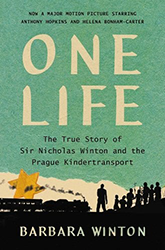In Ronald Balson’s latest historical novel, A Place to Hide, Ted Hartigan, a non-Jewish American in his nineties, recounts his experience as a young US State Department staffer deployed to Amsterdam during The Third Reich of the thirties and forties. He tells his story to Karyn, a Jewish Dutch expatriate and a survivor of the Nazi occupation, who now lives in Tel Aviv. She agrees to record Ted’s life story with the hope that the former State Department official might help find her sister, from whom she’s been separated since the war.
Through Ted’s eyes, we see uncertainty and naiveté plaguing the Netherlands before the German invasion. Will the country’s declaration of neutrality earn it Nazi leniency? After all, say the optimists, the Germans have allowed the Danish government to remain in power and maintain a degree of autonomy in internal affairs, which has protected Denmark’s own Jewish population so far.
Soon, Ted falls in love with Sara, a Jewish Dutch woman. While some cling to the hope that the Third Reich will go easy on Holland, Sara’s father, Saul, predicts a dark future for his country and his fellow Jews. Yet his brutal honesty does not make him a cynic; on the contrary, he resolves to make a difference amid the unfolding tragedy.
After the Nazi invasion and the systematic isolation of the Jewish population, Saul devises a plan to smuggle Jewish children out of the Nazi deportation holding camps. By then, the State Department has discovered the Nazis’ plans for the Final Solution. Leveraging Ted’s diplomatic position, Saul helps facilitate the secret adoption of Jewish children by Dutch Christian families. He and his future son-in-law save scores of Jewish children this way, all the while arranging hiding places for a small group of families. Despite the unprecedented destruction of the Jews of Holland, an extraordinary collaboration between Jews and non-Jews still managed to save lives.
As the story of Ted’s participation in the rescue effort unfolds, Balson returns the reader to the bittersweet past of the interviewer. It becomes clear that as a young child, Karyn lost touch with her own family when her parents agreed to have her and her sister adopted by a Christian Dutch family. Their parents would later be killed at the hands of the Third Reich.
A Place to Hide is both a cautionary tale and a guide for counteracting an ongoing tragedy. It reflects two lessons that every young generation must learn and every established one disregards at its peril. First, we must understand that anticipating the intentions of a dictator requires knowledge of history and a dogged commitment to discerning fact from fiction. Second, we should know that helping victims of tyranny requires balancing benevolence with realism: our inability to save all must not discourage us from saving some. With instability threatening people across the globe, ignoring these lessons jeopardizes countless lives, the guardrails protecting human rights, and our own humanity.
Tim Stone is writing a historical quest with elements of a mystery set in reunifying Berlin. He can be reached at timothydavidstone@gmail.com.





